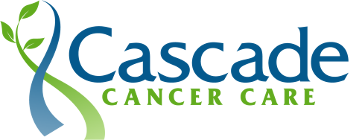What Should I Eat if I Have Cancer?
Eat a rainbow of plants. Plants have a variety of cancer fighting compounds that target tumor stem cells, activate the self-destruct button on abnormal cells, balance sex hormones, and decrease inflammation. Plant fiber controls bad bacteria in the colon, so that you don’t recirculate cancer-stimulating “bad” estrogens. Eat lots of spices. Herbs and spices are nature’s pharmacy. Plants make these as self-defense chemicals against sun exposure, infection, and predators. For humans, the spices are powerful tools against both cancer and infection. Spice up your food with...
Read MoreDoes Sugar Feed Cancer?
While dietary sugar does not necessarily feed cancer, blood sugar feeds cancer. Let’s explore 2 meals. In the first meal, you have a salmon filet, steamed broccoli, and a 3 pieces of dark chocolate for dessert. The protein and fiber balance the sugar, and blood sugar stays level. In the second meal, you have a bowl of cereal and a glass of orange juice. The starch and sugar quickly spikes blood sugar. The pancreas responds by releasing insulin, the hormone of calorie storage and tissue growth. Insulin raises insulin like growth factor-1 (IGF-1). Growth factors feed cancer. Insulin and...
Read MoreMore Than Just a Good Night’s Sleep: What Melatonin Can Do For You.
While melatonin is best-known as a sleep aid, it also regulates the immune system. For people with cancer, melatonin has many important benefits: Activates the “self destruct” process in tumor cells. Doctors call this apoptosis. Blocks estrogen receptors, like the breast cancer drug tamoxifen. Decreases the creation of estrogen, like the breast cancer drug Arimidex. Protects bone marrow cells during chemotherapy, reducing the likelihood of a chemotherapy dose reduction or chemotherapy-related infection. Protects the lining of the stomach during chemotherapy or radiation. Supports...
Read MoreWhat is Evidence-Based Natural Medicine?
Evidence based medicine uses medical research to guide and inform medical decisions. There is a growing body of research regarding the benefits of natural products and lifestyle choices in both cancer prevention and cancer treatment. Naturopathic oncologists apply this research in their practice of evidence-based naturopathic medicine. There is a lot of information online regarding natural healthcare options for people with cancer. Some of this is useful and reliable. Some of it is questionable. And some of it can be hard to interpret and use. When looking at health information, here are...
Read MoreWhat is Naturopathic Oncology?
Naturopathic oncology is the art and science of integrative cancer care. It is the speciality of naturopathic oncologists — board-certified experts in natural cancer care. Naturopathic oncology encompasses conventional and natural therapies for people with cancer and their caregivers. Naturopathic oncologists use evidence based medicine and a personalized approach to determine the safest and most effective integrative cancer care program for you. A naturopathic oncologist can guide you through a new cancer diagnosis, help you get the most from cancer treatment, and rebuild your health...
Read MoreWhat Kinds of Doctors and Practitioners Practice Integrative Oncology?
When you’re fighting for your life, choose a team of wise advisors. The integrative oncology team is a group of natural cancer care experts, all centered on your needs. To begin with, you are at the center of care. Your integrative oncologists serve you. Please talk with us about your questions, preferences, fears, and hopes. This will help us to guide you to the best health care options for you. For example,while oxaliplatin may be a standard chemotherapy in colon cancer, it has a risk of neuropathy. If you’re a concert pianist, this drug may not be the best choice for you. If...
Read More
 541-323-3833
541-323-3833